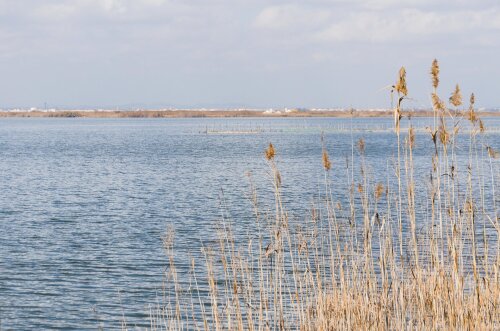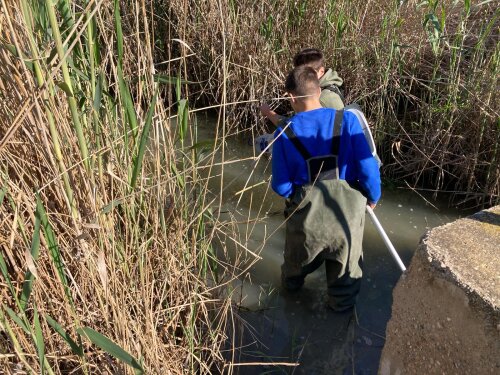From Conflict to Cooperation: How Science Can Help Us Save Water
Water, the very essence of life, holds a double-edged sword. It sustains us, yet when scarce, polluted, or unequally distributed, it can become a source of conflict. But there's hope. Through collaboration and scientific understanding, we can manage our water resources responsibly, fostering a more harmonious world.
Enter the QTOX Doctoral Network, a dedicated group of researchers tackling water pollution and its impact on aquatic ecosystems, especially in the face of climate change. Their work sheds light on the complex challenges we face.

* Albufera Natural Park in València, Spain
One key area of investigation is how various pollutants, alone and combined, affect freshwater environments. My research focuses on the effects of mixed pollutants and the effectiveness of water treatment in removing them. Dirk de Leijer (DC2) examines how aquatic organisms respond to pollution, providing insights into the health of our water bodies. Diving even deeper, Omar Orozco (DC6) investigates the plant-level consequences of contaminants. These findings will be crucial for Marius Schmitt's (DC8) research, which uses mathematical models to understand the broader impact on entire ecosystems. But understanding the problem is only the first step. Venja Schoenke (DC3) is developing models to predict and mitigate chemical risks in water based on lab results. This research plays a vital role in developing practical solutions for purifying our water sources.
Climate change adds another layer of complexity. Lea Grenc's (DC4) research explores how rising temperatures influence the fate of chemicals in water, while Emma Yenney (DC7) investigates the consequences of a warming climate on aquatic plants.
Pierina Isabella Rivas (DC9) examines the impact of pesticides and climate stressors on aquatic communities. Using outdoor mesocosms, she aims to provide realistic insights into these factors' combined effects. Constanza Vega (DC10) will focus on building multispecies models using data from these mesocosm experiments.

The ultimate goal? To equip policymakers with the information needed to establish regulations that safeguard our freshwater ecosystems.
By collaborating to address water-related challenges, we can promote unity among communities and nations. The QTOX project aligns with various UN Sustainable Development Goals, including ensuring access to clean water and sanitation (SDG 6), combating climate change (SDG 13), and preserving marine life and oceans (SDG 14). Through scientific research, innovative solutions, and a global commitment to collaboration, we have the potential to transform water from a source of contention into a catalyst for peace and prosperity.
References: